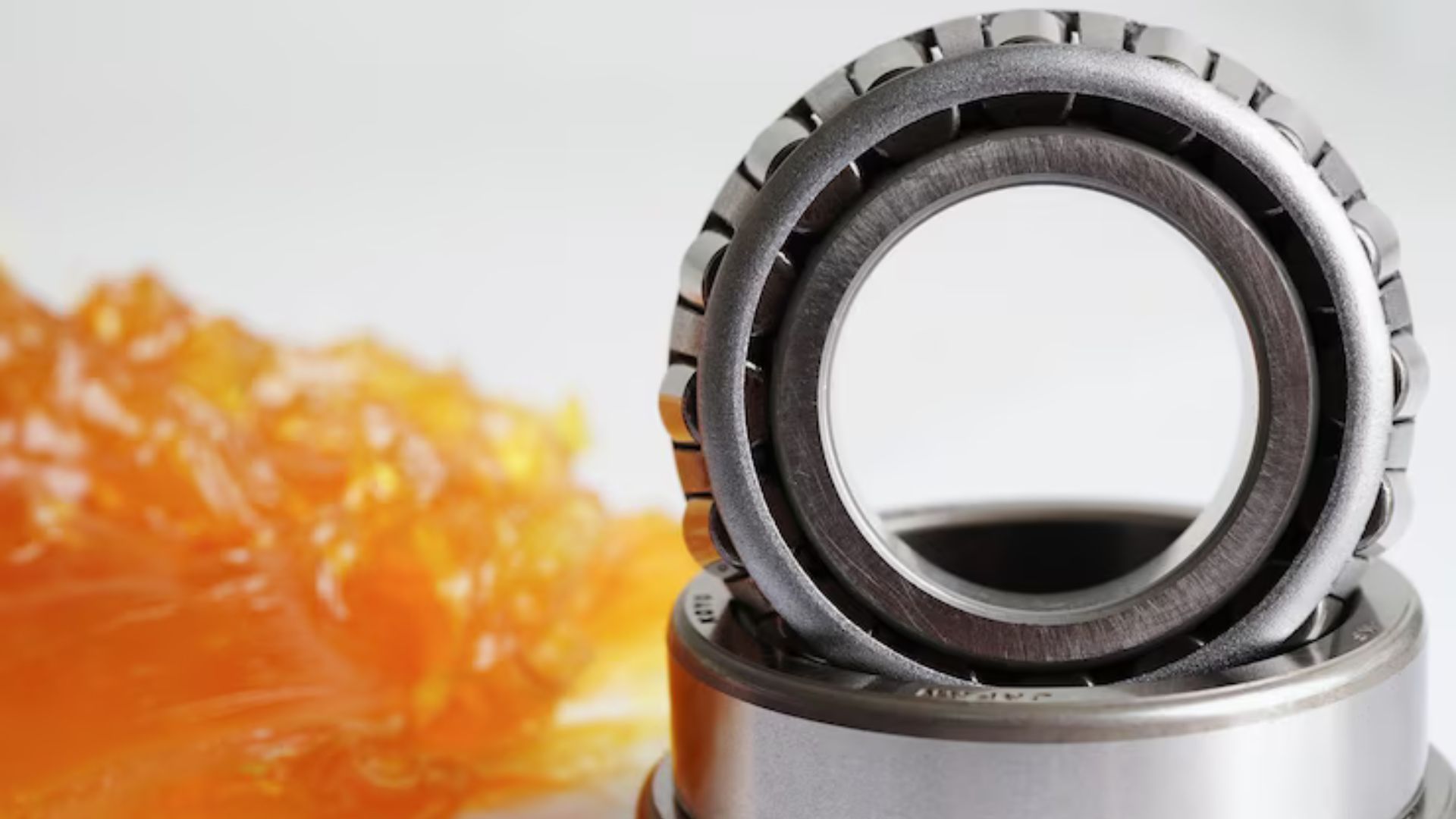When it comes to maintaining your vehicle’s performance and extending the lifespan of its components, using the best wheel bearing grease is essential. Wheel bearings play a critical role in reducing friction, ensuring smooth movement, and supporting the weight of the vehicle. Proper lubrication can make a significant difference in the efficiency and longevity of these components. In this article, we will explore the importance of wheel bearing grease, how to choose the best option, and answer frequently asked questions about this vital maintenance product.
What Is Wheel Bearing Grease?
Wheel bearing grease is a specialized lubricant designed to reduce friction between the moving parts of a wheel bearing. It is crucial in preventing wear and tear on the bearings by maintaining smooth and effective operation. Without proper lubrication, wheel bearings can overheat, degrade, or even fail completely, leading to costly repairs and safety hazards. The grease acts as a barrier against dirt, moisture, and other contaminants, ensuring the smooth operation of the bearing and keeping it free from damage.
Importance of Wheel Bearing Grease
Using the best wheel bearing grease is important for several reasons:
Prevents Wear: Wheel bearings are subject to constant stress from vehicle weight and road conditions. Grease minimizes friction, preventing the bearing surfaces from wearing down prematurely.
Reduces Heat: Proper lubrication helps dissipate heat generated by friction, reducing the chances of overheating and bearing failure.
Seals Against Contaminants: Good wheel bearing grease acts as a seal, keeping dust, dirt, water, and other contaminants out of the bearings, which helps maintain their performance.
Increases Longevity: By reducing wear and contamination, high-quality grease can significantly extend the life of your wheel bearings.
How to Choose the Best Wheel Bearing Grease
Selecting the best wheel bearing grease for your vehicle depends on several factors, including the type of vehicle, operating conditions, and personal preferences. Here are some key considerations to keep in mind:
Consistency and Thickness
Wheel bearing greases come in a variety of consistencies, ranging from light to heavy. For standard passenger vehicles, a medium-weight grease is often ideal. Heavier greases are suitable for high-stress applications, such as off-road or heavy-duty vehicles.
Water Resistance
If you drive in wet or humid conditions, water resistance is essential. Water can wash away grease, leading to corrosion and accelerated wear. Choose a grease that is specifically designed to be water-resistant, such as those containing lithium soap or synthetic bases.
Temperature Tolerance
Wheel bearings operate under a range of temperatures. Extreme heat can cause grease to break down, while freezing conditions can make it too stiff to provide adequate lubrication. Look for grease that can handle the temperature extremes in your area. High-performance greases often feature additives that improve temperature resistance.
Additives
Many high-quality greases are enhanced with additives such as anti-wear agents, rust inhibitors, and friction modifiers. These additives improve the grease’s ability to protect the bearings under stress and increase its durability.
Compatibility
It’s crucial to use the right type of grease that is compatible with your vehicle’s bearings. Check the manufacturer’s recommendations for the type of grease to use in your wheel bearings. Mixing incompatible greases can cause the lubricant to break down, leading to reduced performance and bearing failure.
Top Wheel Bearing Greases in the Market
Mobil 1 Synthetic Grease
Mobil 1 is known for producing high-performance synthetic lubricants, and their synthetic grease is no exception. It offers superior protection in both high and low temperatures and provides excellent water resistance. This grease is perfect for everyday driving as well as more demanding conditions.
Lucas Oil X-Tra Heavy Duty Grease
Lucas Oil is a well-known brand in the automotive industry, and its X-Tra Heavy Duty Grease is designed for high-load, heavy-duty applications. This grease is ideal for trucks, SUVs, and off-road vehicles. It’s water-resistant and can withstand extreme pressures, ensuring the longevity of your wheel bearings in tough conditions.
CRC Industries Sta-Lube Wheel Bearing Grease
CRC’s Sta-Lube is a high-quality grease that offers excellent protection against wear and corrosion. It’s ideal for high-speed applications and provides long-lasting lubrication in both high and low temperatures. Its anti-wear properties help extend the life of your wheel bearings.
Royal Purple Synthetic Grease
Royal Purple is another top contender in the field of high-performance lubricants. Their synthetic grease is designed for a wide range of applications, offering excellent protection against extreme temperatures, water, and corrosion. It’s known for its long-lasting effects and ability to reduce wear and tear on wheel bearings.
GreaseTek Synthetic Wheel Bearing Grease
GreaseTek’s synthetic grease is known for its superior performance in various climates. It’s resistant to water and rust, which makes it suitable for vehicles exposed to harsh conditions. This grease also offers excellent thermal stability, ensuring optimal performance at both low and high temperatures.
How to Apply Wheel Bearing Grease
Proper application of wheel bearing grease is key to maximizing its effectiveness. Here are the steps to follow when applying grease to your wheel bearings:
Remove the Wheel
Start by safely lifting the vehicle and removing the wheel to access the wheel bearing.
Remove the Old Grease
If you’re replacing the grease, use a clean rag or brake cleaner to remove any old grease from the bearing and surrounding area.
Pack the Bearing
Using a bearing packer or a clean hand, pack the bearing with grease. Make sure the grease is evenly distributed and that it fills the entire bearing cage. This ensures optimal lubrication and protection.
Reassemble the Bearing
After packing the bearing, reassemble it into the wheel hub or spindle, ensuring that all parts are properly aligned.
Test the Bearing
Before reattaching the wheel, manually spin the bearing to check for smoothness. If the bearing feels rough or gritty, you may need to repack it with more grease.
Conclusion
Choosing the best wheel bearing grease is essential for ensuring smooth operation, extending the life of your bearings, and preventing costly repairs. By considering factors such as consistency, water resistance, temperature tolerance, and additives, you can find the ideal grease for your vehicle’s specific needs. Regular maintenance, including proper lubrication of your wheel bearings, will help keep your vehicle running efficiently for years to come.
ALSO READ:Manhiascan: The Future Of Digital Security
FAQs
How often should I replace wheel bearing grease?
The frequency of replacing wheel bearing grease depends on factors like driving conditions and vehicle type. As a general rule, it’s recommended to check and repack your wheel bearings every 12,000 to 18,000 miles, or as specified by the manufacturer.
Can I use regular grease for wheel bearings?
It’s best to use grease specifically formulated for wheel bearings. Regular grease may not provide the necessary protection, especially against heat, water, and pressure.
What happens if I don’t use wheel bearing grease?
Without proper lubrication, your wheel bearings can overheat, wear down quickly, or even fail completely. This can lead to costly repairs and unsafe driving conditions.
Can I mix different types of wheel bearing grease?
It’s not advisable to mix different types of wheel bearing grease, as this can cause the lubricants to break down or become less effective. Always use the same type of grease when maintaining your wheel bearings.
How do I know if my wheel bearings need new grease?
Signs that your wheel bearings may need new grease include a grinding or squeaking noise, vibration while driving, or the feeling of uneven resistance when the wheel is spun. If you notice these symptoms, it’s important to inspect and maintain the bearings promptly.







